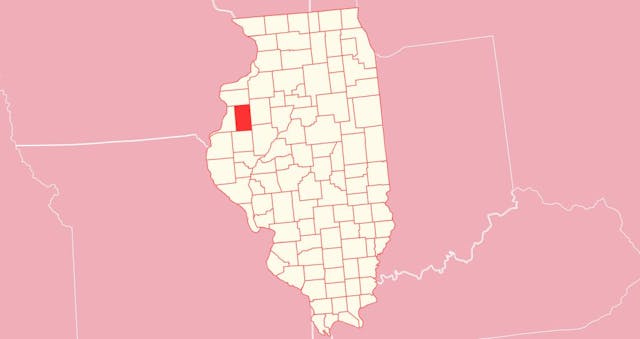Rehabs in Warren
Warren County was founded on January 13, 1825, in Illinois, US. Monmouth is its county seat. As one of the smallest provinces, it has a total of 542.38 sq mi (1.405 km2) area. Besides, this area is one of the minor dense populated areas. According to the data, its population was 16,531 in 2021, decreasing by -0.52%.
As a small region, it ranks as a low-healthy area. Based on 2021 statistics, there were 4 overdose drug deaths. At the same time, it had 3% of alcohol-impaired driving deaths.
Although Warren Count rehabs are few, the rest are doing everything to improve their services and programs with the Department of Health.
Drug and Alcohol Evaluation
When someone wants to quit drugs, they must pass an evaluation. It is a kind of test to evaluate the addiction level. At first, clients should teel about their history of addiction or misuse. Then, if necessary, people will take blood, nail, urine, and other tests. Once doctors know the state of patients, they will refer them to a cure program.
Rehab Programs in Warren County
Although rehab centers are lake in this province, they provide all programs for communities. In fact, they show a comprehensive approach to having a healthy society.
Detox
Kick the habit of substance abuse may be risky for patients if not monitored by trained specialists. When someone takes this action lonely, the result may lead to dangerous outcomes. For that reason, rehabs in Warren County recommend a residential detox program. Doctors utilize certain medicines to reduce the effects of withdrawal symptoms.
Detox is the core of the whole cure process of substance use addiction. People will quickly recover within all stages of a cure if this process is conducted correctly and completely.
Inpatient (IP)
Inpatient care offers treatment plans far away from peoples’ homes, helping them focus on their recovery journey. They learn to keep sobriety in a substance-free environment.
In essence, holistic methods free patients from addictive behavior by engaging them in various activities. They get new skills and achievements in their life. Life skills include contact with nature, arts, physical, and other activities. Thanks to them, a person is able to develop coping abilities and obtain balance.
Partial Hospitalization (PHP)
The most intensive outpatient care is the partial hospitalization program. It takes place five days weekly from morning to evening. Residents attend various activities and sessions. Moreover, in-person and group therapies and family counseling are the central part of it. Family members should support their loved ones when they return home.
Intensive Outpatient (IOP)
People who can easily overcome detoxing and do not need residential care may participate in an intensive outpatient program. They can adapt their healing process to routine. Contrary to the intensive one, it requires more individual effort for recovery.
Outpatient (OP)
Outpatient care provides evidence-based counseling treatment for those who need to adjust recovery to their life. It offers in-person therapy that is face-to-face interaction with a skilled therapist. It takes place in a safe and secure environment. This method aids patients in overcoming substance addiction symptoms.
Additionally, members take part in group therapy. It gives a chance to change addictive behavior. People receive social support here and encourage each other. It helps them to recognize that they are not alone in their recovery.
Prices and Payment Options
The fees for treatment for substance use disorder are very subjective. The stage and duration of programs affect the price. However, clients can use in-network and out-of-network insurance. Thus, those who do not have any coverage can take advantage of different payment means or financial help that the centers will provide.
Teens Rehabilitations
Teens struggling with addiction can get specialized care and support in this province. That is, rehab centers offer holistic and individualized counseling for them. Addiction physicians and psychologists have developed specialty modalities for minors according to their age groups. So, it is possible to quit substances entirely due to specific strategies and approaches.

